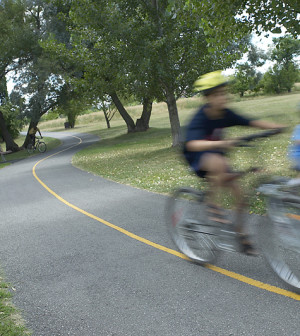- Could Your Grocery Store Meat Be Causing Recurring UTIs?
- Are You Making This Expensive Thermostat Error This Winter?
- Recognizing the Signs of Hypothyroidism
- 10 Strategies to Overcome Insomnia
- Could Artificial Sweeteners Be Aging the Brain Faster?
- Techniques for Soothing Your Nervous System
- Does the Water in Your House Smell Funny? Here’s Why
- Can a Daily Dose of Apple Cider Vinegar Actually Aid Weight Loss?
- 6 Health Beverages That Can Actually Spike Your Blood Sugar
- Treatment Options for Social Anxiety Disorder
Sleepiness in Your Teen May Signal ‘Weed’ Use


Teens who are being assessed for the sleep disorder narcolepsy should also be screened for marijuana use because the drug can cause excessive daytime sleepiness, researchers report.
People with narcolepsy show the same symptoms, the study authors explained.
The researchers looked at 383 children evaluated for excessive daytime sleepiness, and found that 10 percent of those aged 13 and older whose results indicated narcolepsy also had urine drug screening tests that were positive for marijuana.
Teen boys were more likely than girls to test positive for marijuana and to have sleep test results consistent with narcolepsy. None of the children younger than 13 tested positive for marijuana, according to the report published in the Journal of Clinical Sleep Medicine.
“Our findings highlight and support the important step of obtaining a urine drug screen in any patients older than 13 years of age before accepting test findings consistent with narcolepsy,” senior study author Dr. Mark Splaingard, director of the Sleep Disorders Center at Nationwide Children’s Hospital in Columbus, Ohio, said in a hospital news release.
“We believe that many of the children who had positive urine drug testing for marijuana and testing consistent with narcolepsy had improvement of the symptom of excessive daytime sleepiness after enrollment in a community drug program, because most didn’t come back for repeat diagnostic studies once they were drug-free,” Splaingard said.
Testing for pot use is an important tool when screening for narcolepsy in teens, he concluded.
More information
The U.S. National Library of Medicine has more about narcolepsy.
Source: HealthDay
Copyright © 2026 HealthDay. All rights reserved.










